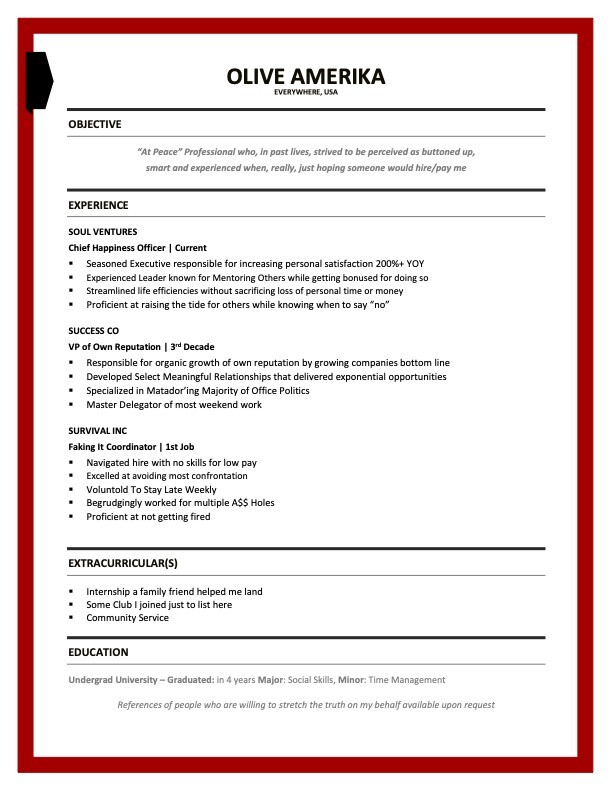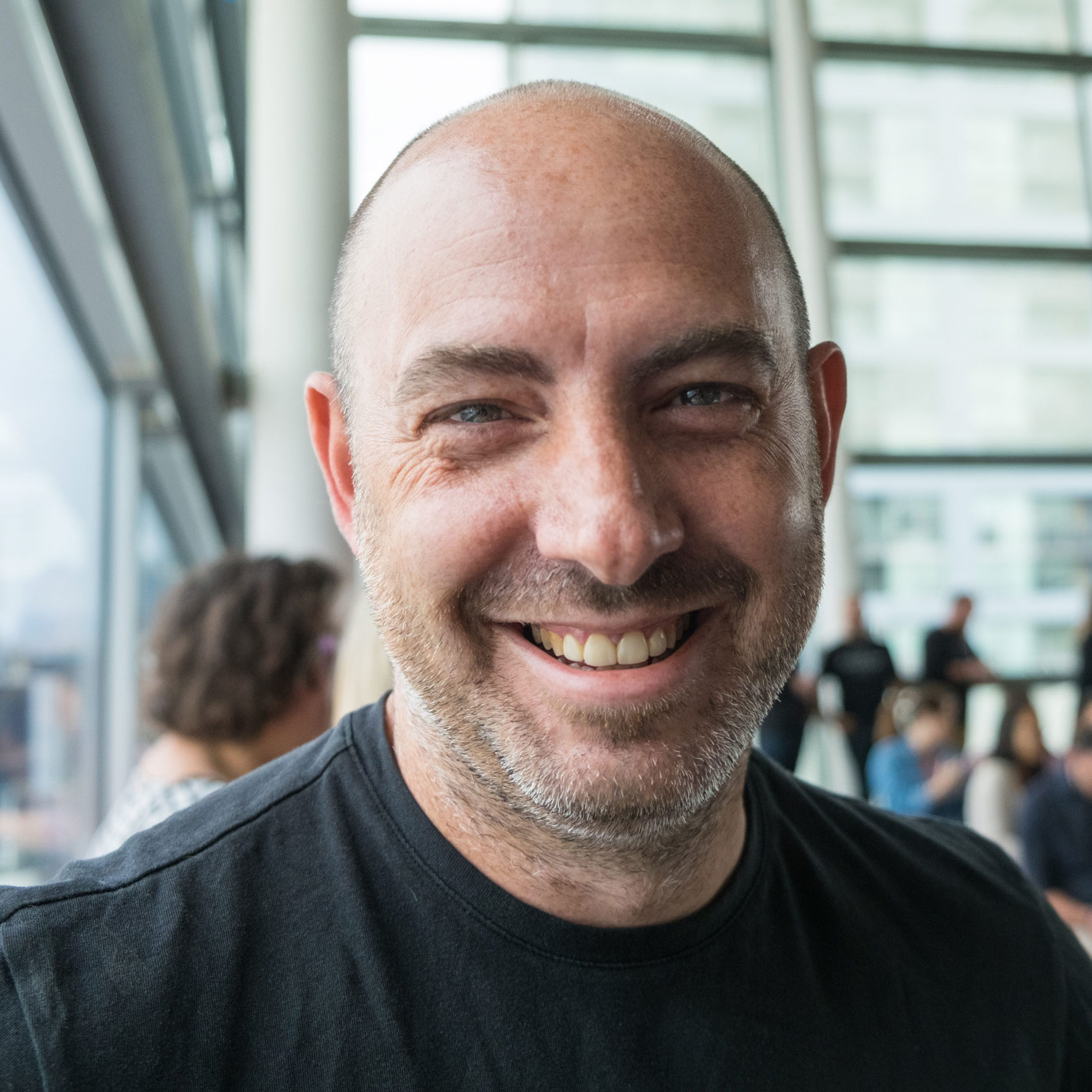Resume of Soul
I was having breakfast last Friday with two wise friends who just started a new business together.
These two folks are high on my list because they’re slow-cooked entrepreneurs who are at the point in their lives that, sure, they want to make money — but more so, they want to make an impact.
The older I get, the more I realize that “stage” and “age” do play a role in the “impact-making” game.
As we sat in Del Mar sharing coffee and stories, they shared with me that most people spend the first 20 years of their lives being fed life. When we think “fixed mindset”, it comes from what we were taught and told about the world. That becomes our belief system.
In the past, I had written about the stages many of us find ourselves in during the decades spent in Corporate America. From that very first so-I-got-the-job work experience to what life might look like a score down the line, it’s nothing short of a journey — which I share a bit more about below.
But I had never considered that the first 20 years of life, which are often Shoved at us, do have a big say on what we believe is possible when we leave the nest and take on the rest.
After hearing their take, I ended up sharing the following parable with them:
Once upon a time, there was the younger version of you.
The one who graduated from college. And who had interned here (or there). But “life after diploma” kickstarted your way-too-messy business journey. In the early years, you didn’t get to choose much. You didn’t have the luxury of picking that first company you worked at. No one asked you if that first boss was going to fly with you. You were just happy that someone actually paid you to do a job. It wasn’t ideal. It was all too fast. It was a scrappy “just don’t get fired” start. Those first 5-7 years of business life I call Survivor Mode.
Along the way, you started to make sense of it all. Experiences turned into “experience” — and work life began to slow down. You survived, “I learned what to do by watching what not to do.” You shared board rooms with a few peers who always made your head nod. So much, that when you (or they) left this company, you promised to keep in touch. A few years later? You made sure to work with them again. Sure, you had to sift through tons of “opt-out” bosses and coworkers; by doing so, you found those select few who made life easier while making you better. What came of these partnerships brought kinship, truth, mutual respect, and prosperity. This next 10-15 years of business life I call Success Mode.
As time went on, you saw a changing of the guard. You were less involved — or needed — in the day-to-day. This wasn’t a bad thing; rather, it opened you up for a new role. It gave you the ability to share what you learned with others. There was leadership. Mentorship. A transfer in wisdom. Purpose played a bigger, more intentional role in your life. You realized business didn’t have to be “all business”; it could stem out of something genuine and personal. This third phase of business life I call Soul Mode.
Survival. Success. Soul. This was the business path for many of us. Because of it, it caused many of us who are now a bit older to aggregate a resume that basically felt like this:

Read the resume above? Did it make you smile? Then you’re probably over 40. But if you read the resume above and it made you shriek? Well then, while I’m sure you’re well under 40, I do have good news for you. Because I don’t believe this is the resume you’re building. Nor do I believe it’s the business path of this next generation.
The business path of today’s workforce goes something like this: Soul. Success. Sustain.
The next generation? When it comes to work, they want to have their cake, they want to eat it too — and they want their cake to be deliciously gluten-free. They want it all. And this is a good thing for all of us.
As a leader, my job now is to create that environment from the start.
That’s the funny thing about change. “Soul. Success. Sustain” is a change to many of “us”. But it just “is” to this freshly-minted workforce who, if they don’t buy in, they’re out.
The older I get, the more I realize everyone — and I mean everyone — is doing the absolute best that they can.
When you’re in the business of fear-fighting, you come to realize that so many of us are stuck, scared, stale or safe. The only way to overcome all those fears that land you in one of those states is by unlocking a bit of inner courage.
It’s hard to be courageous when you’re cloudy. You can’t see the North Star on a cloudy night as much as a Captain striving to see a lighthouse through a fog.
When we find the thing that stirs our soul — and we can get compensated for doing so — the skies open up.
The good news is it’s never too late or too early to figure out that course correction.
Once upon a time, I was an ad executive who learned from some of the very best on Madison Avenue. Today, I passionately get paid to tell the courageous truth to some serious executives and their teams.
Not living your purpose? There’s still time…until there isn’t.
Courage is regret insurance.

